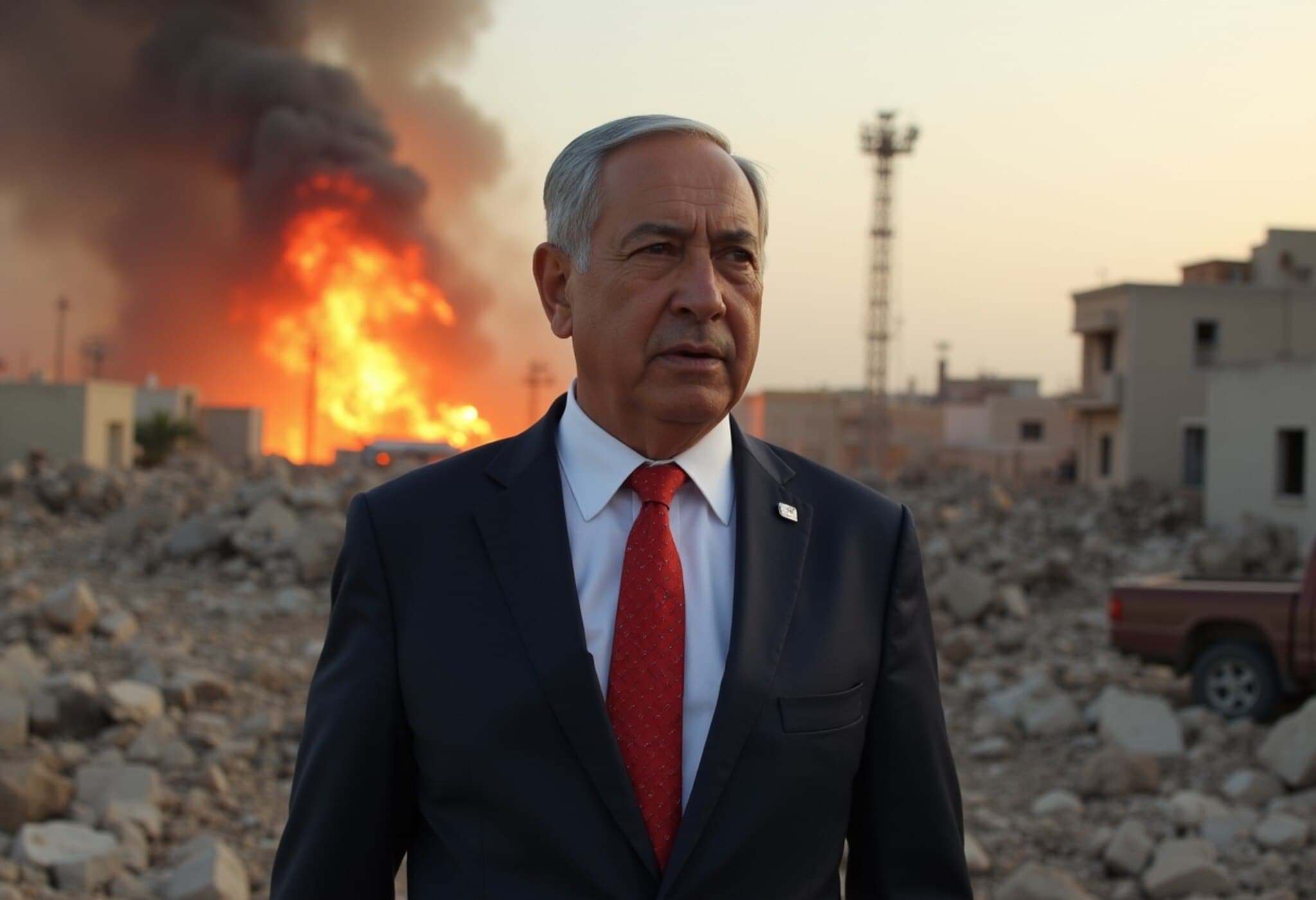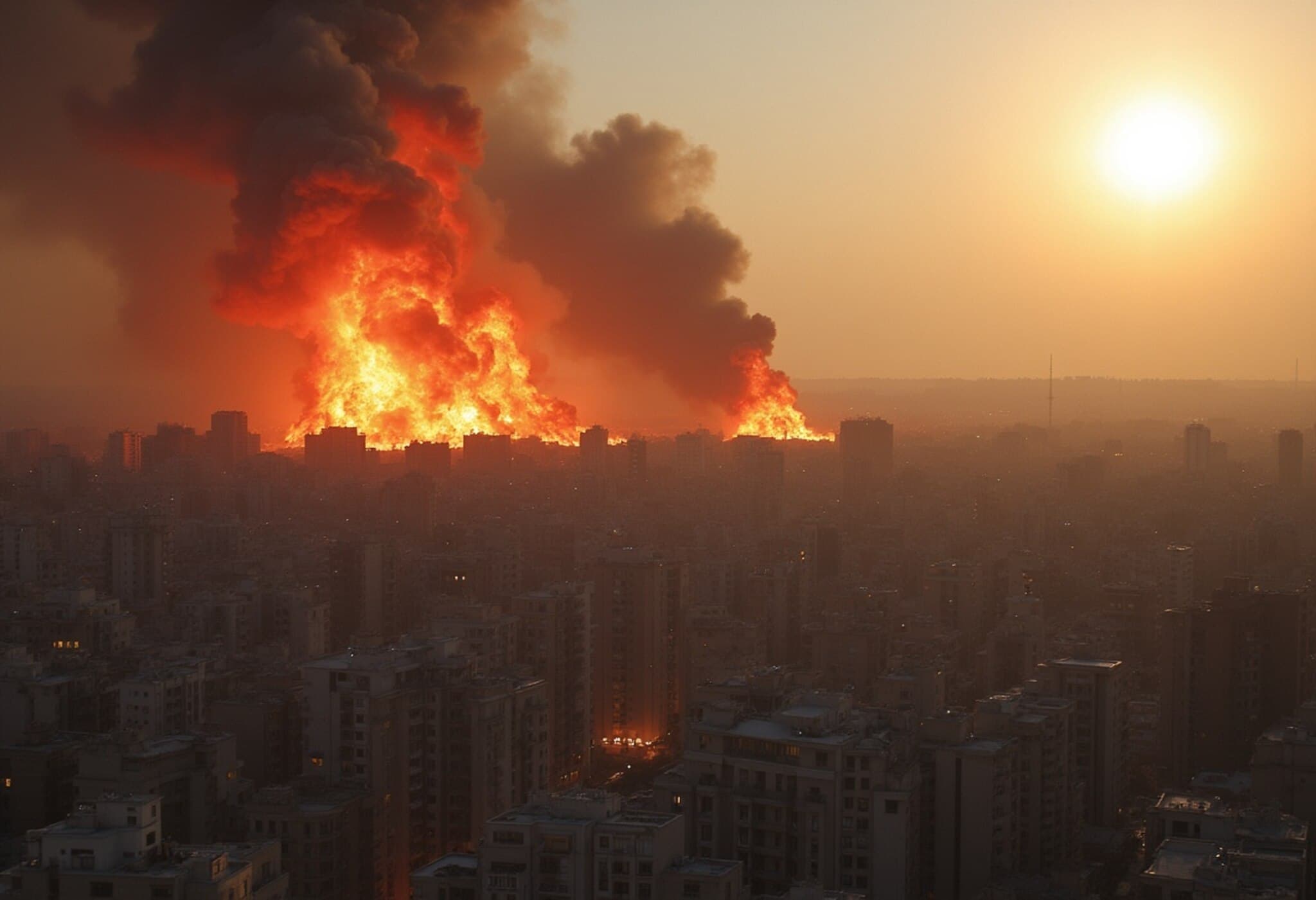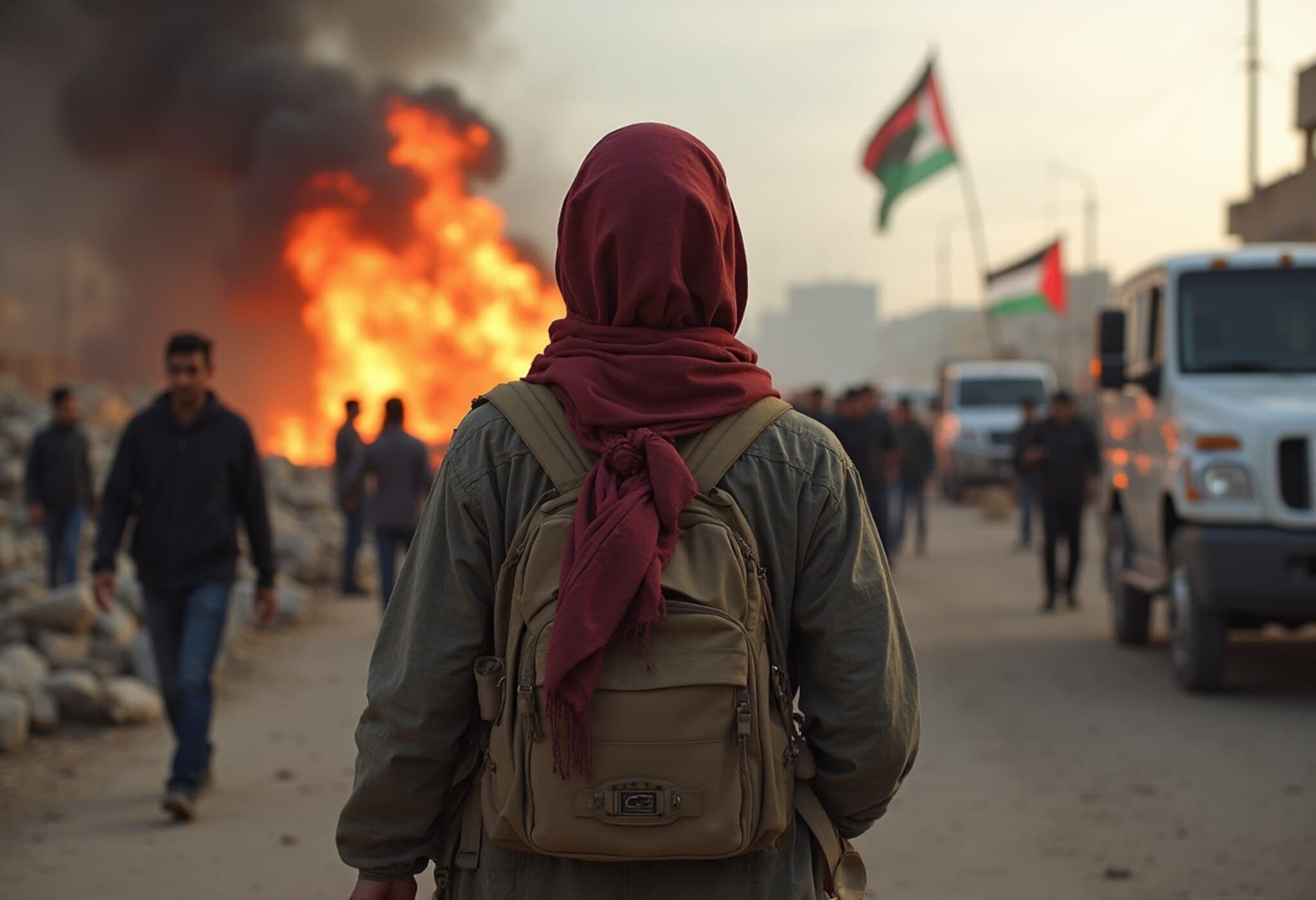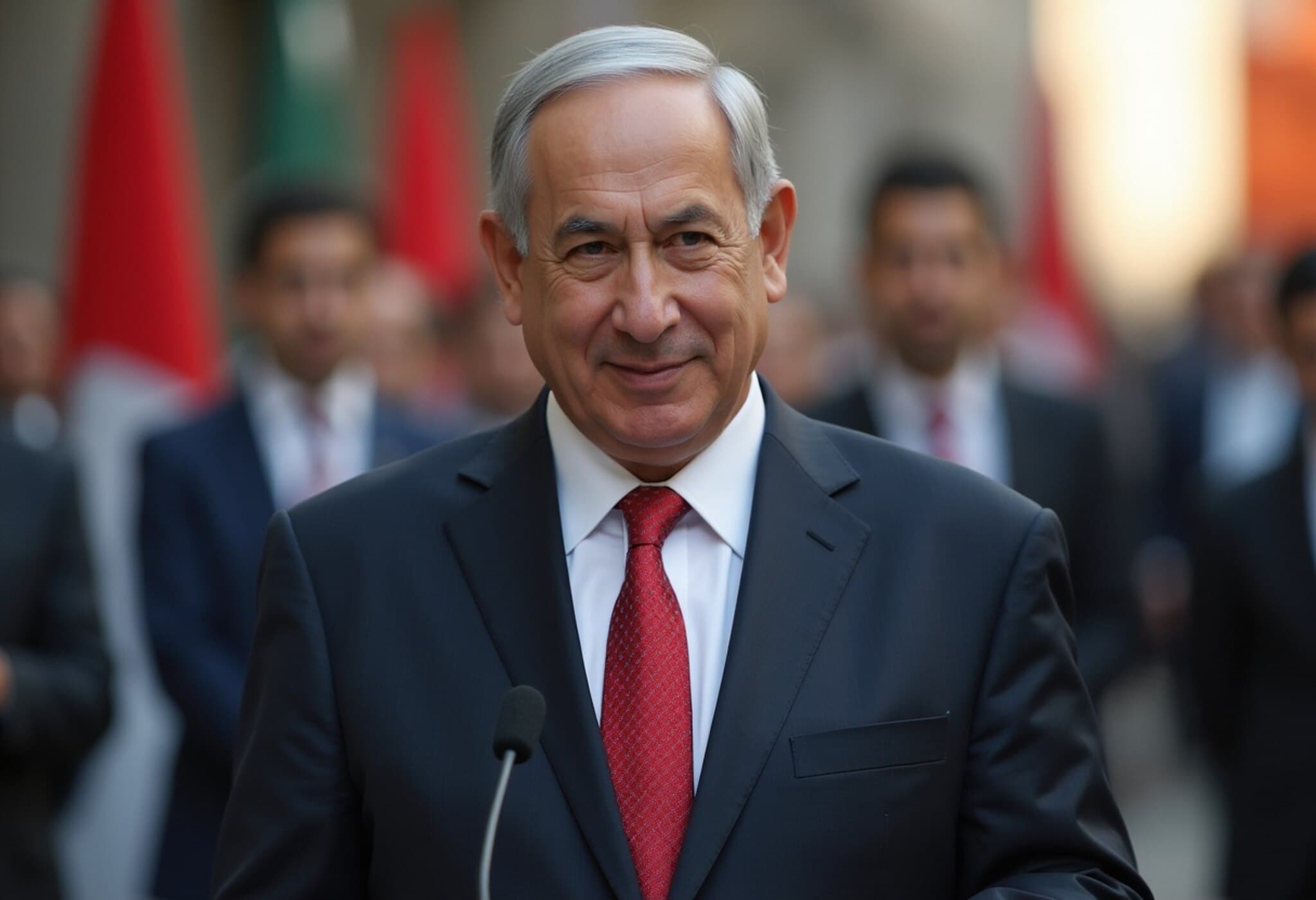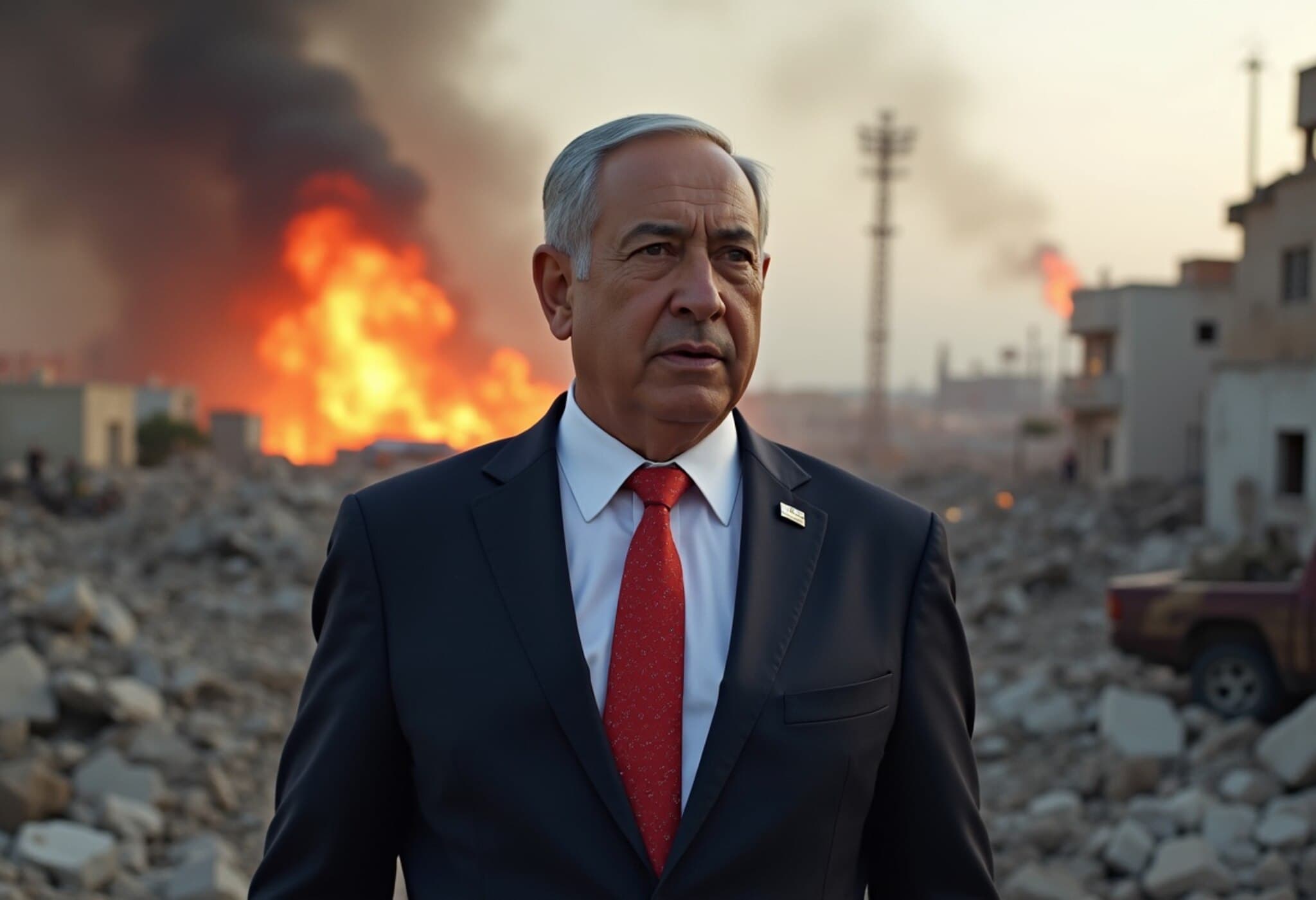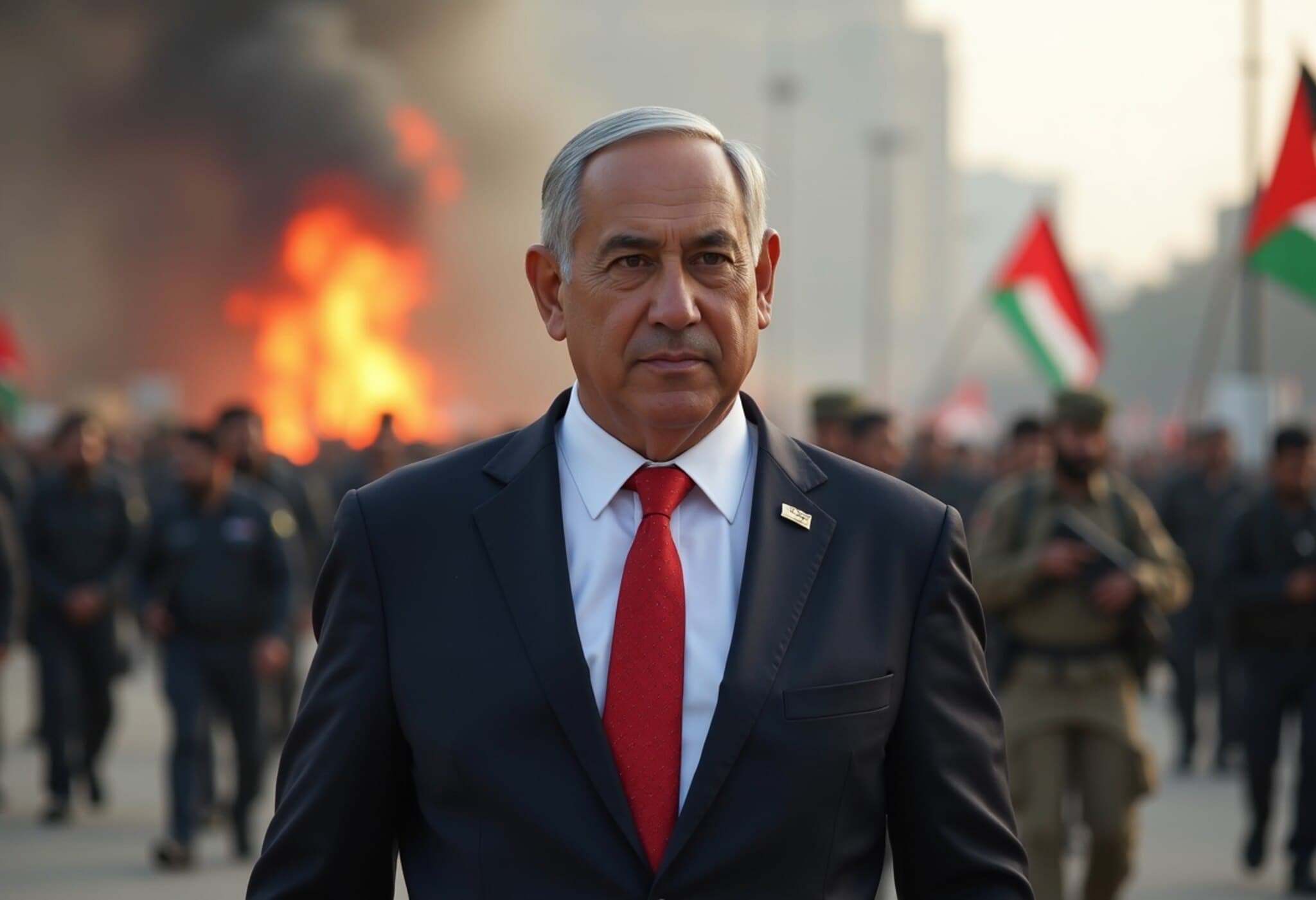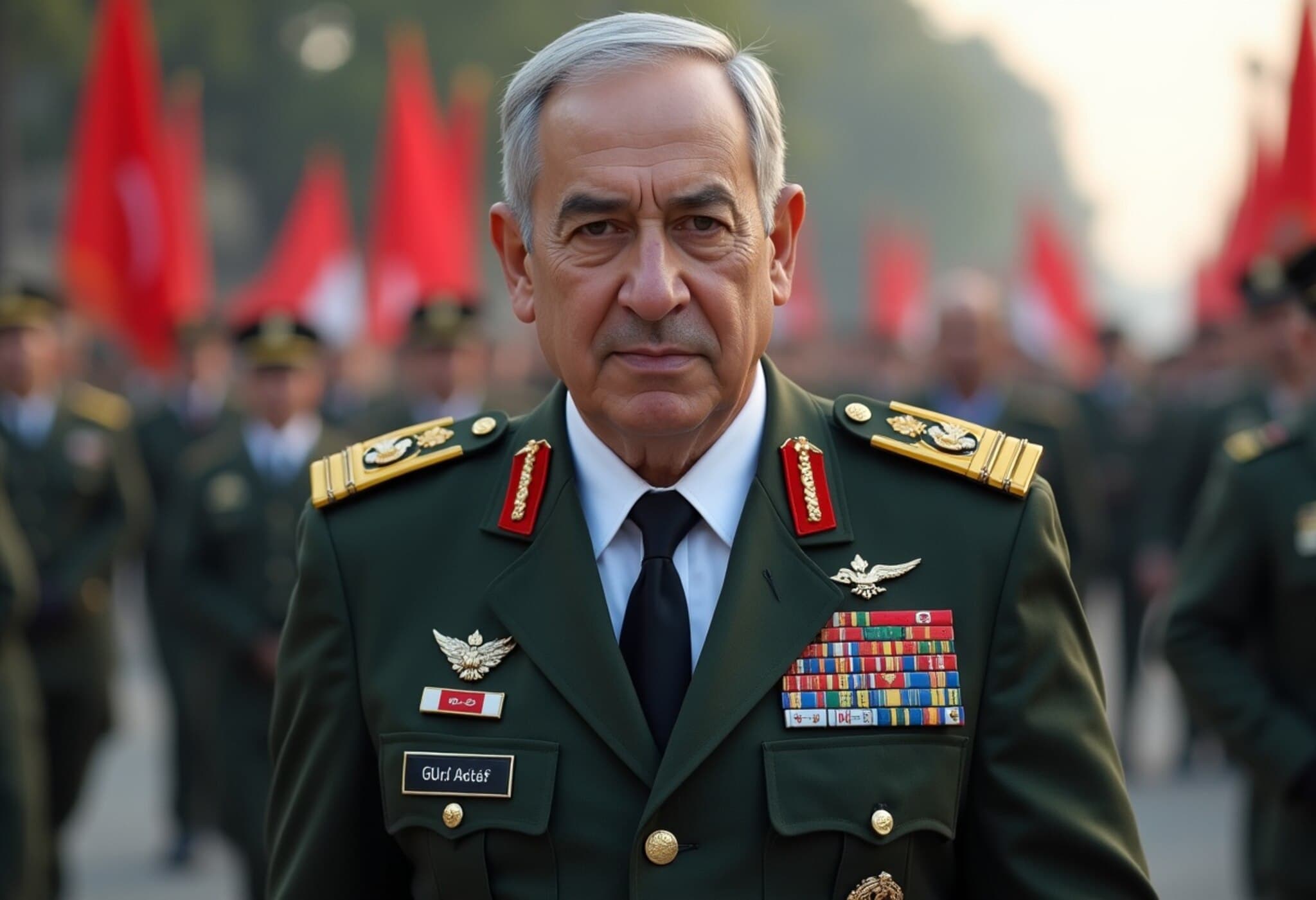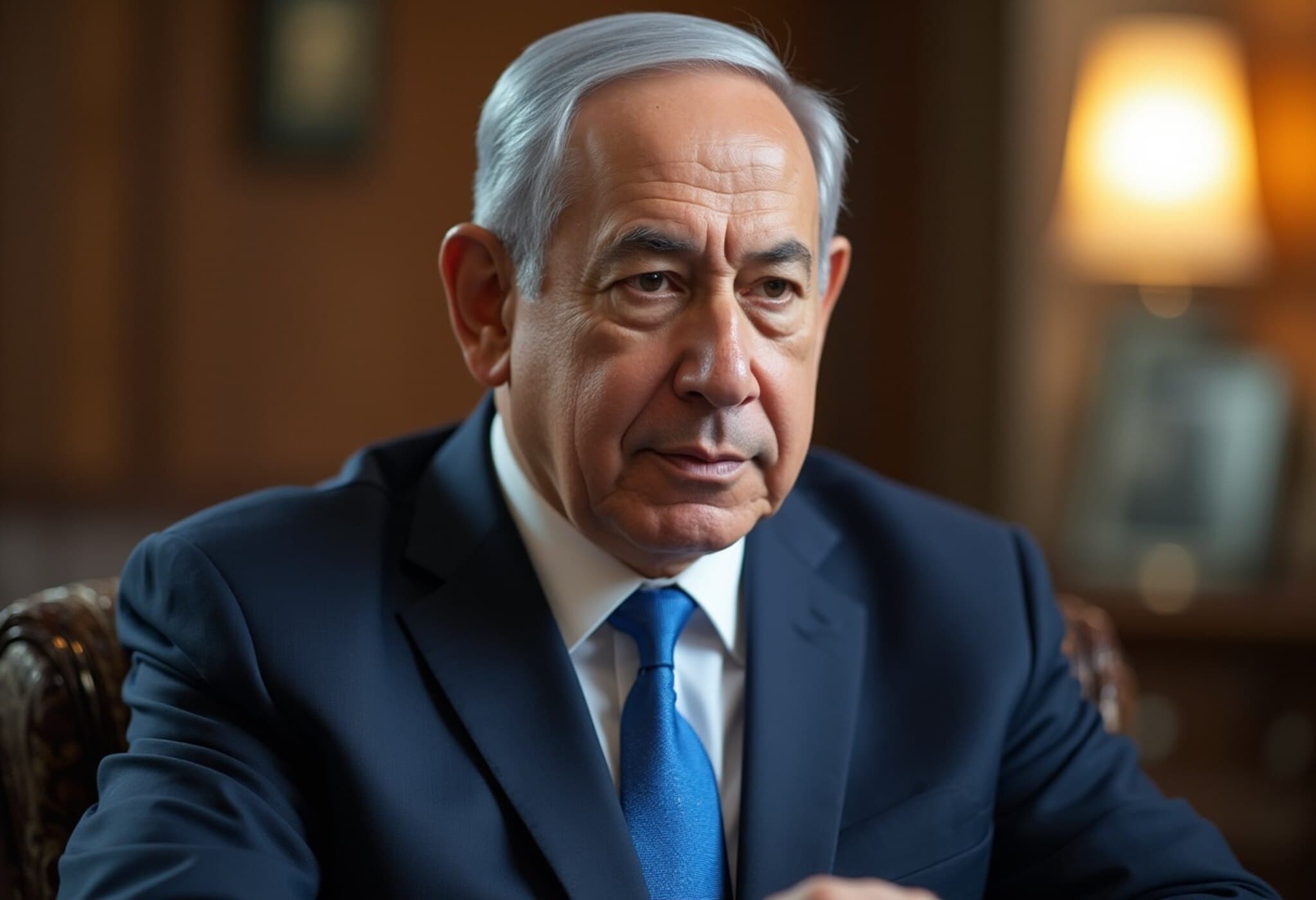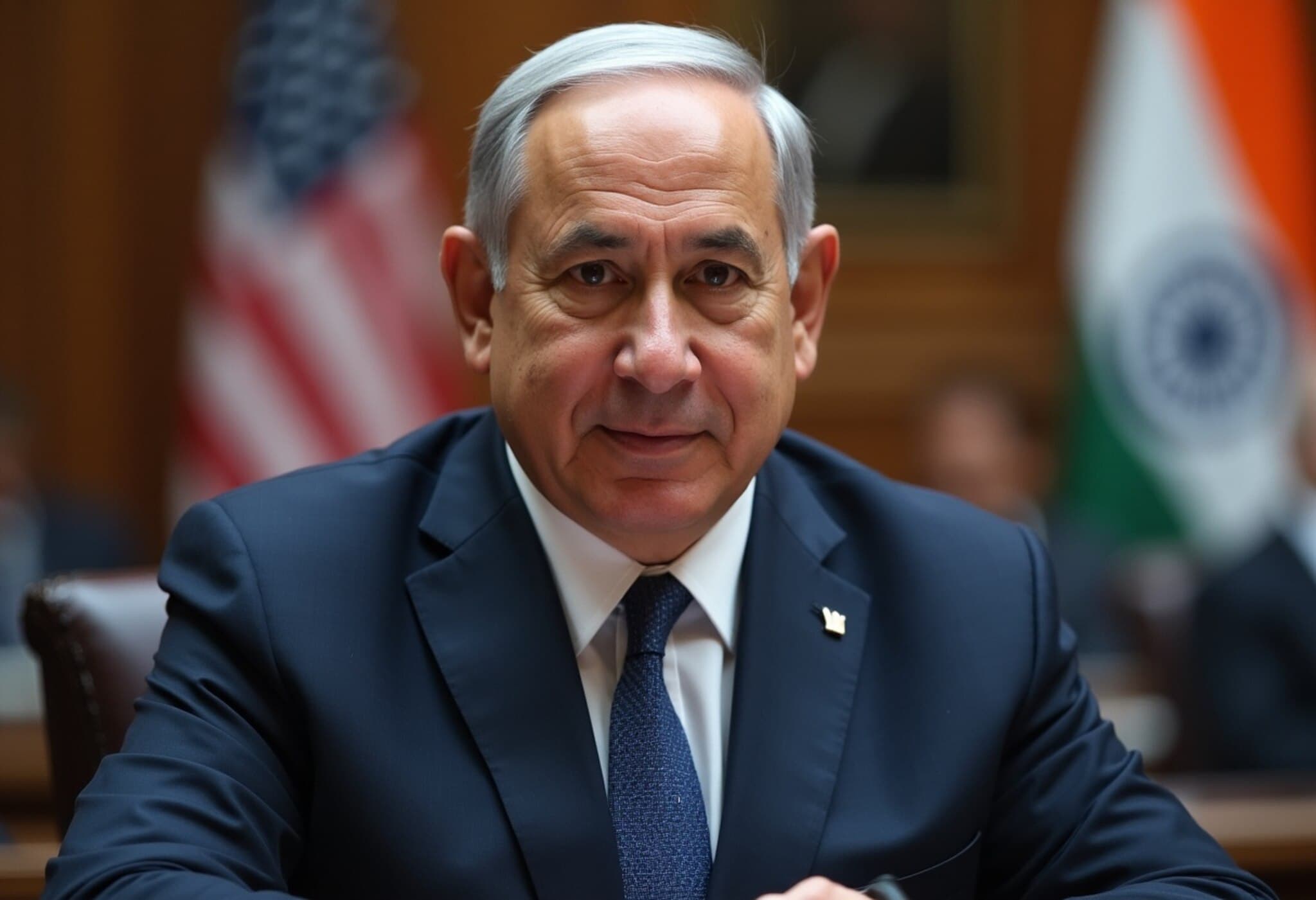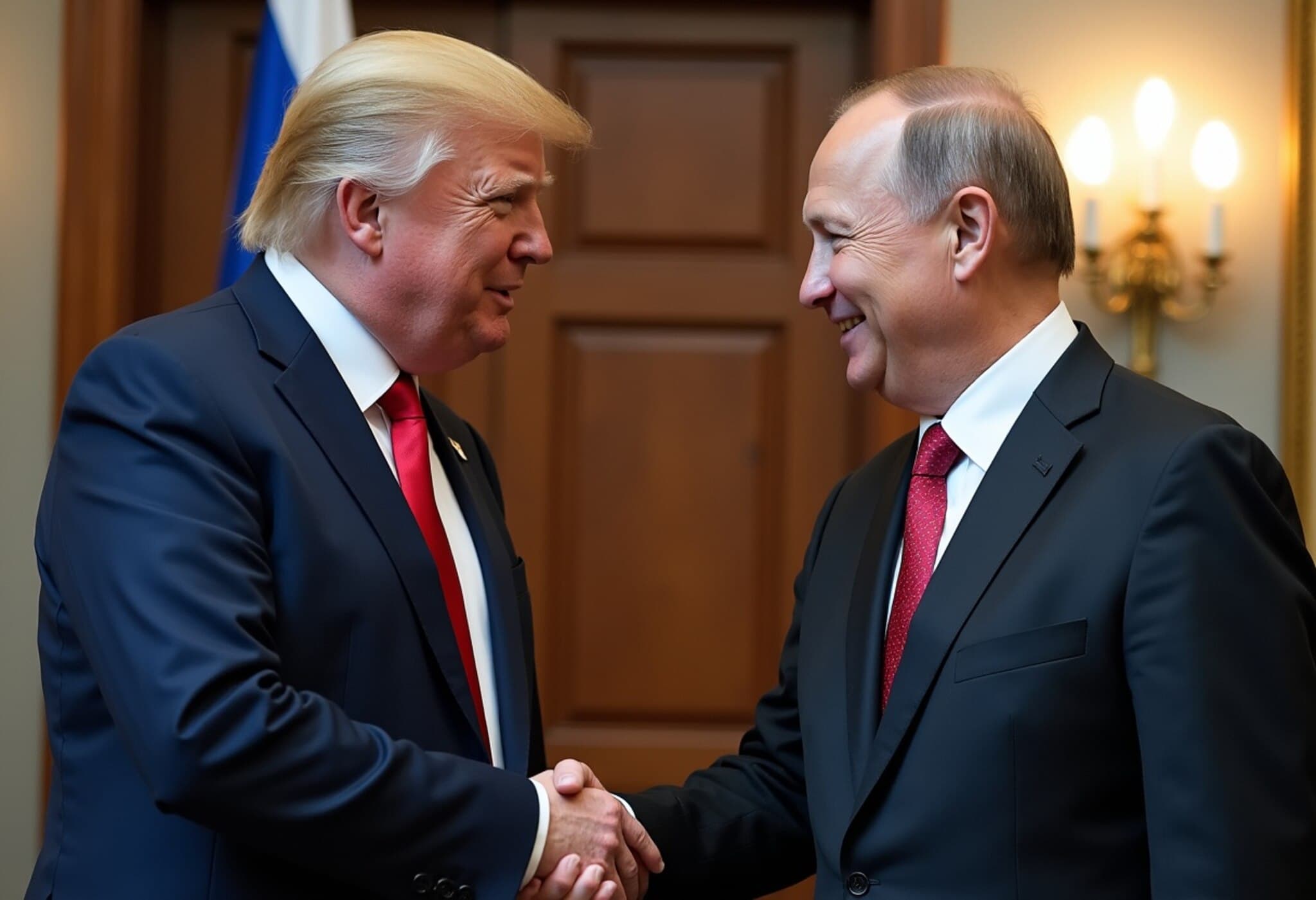Netanyahu Defends Broadening Military Campaign in Gaza
Israeli Prime Minister Benjamin Netanyahu has doubled down on an intensified military offensive targeting Gaza, declaring that Israel must "finish the job" with a decisive defeat of Hamas. This escalation extends beyond Gaza City, now including densely populated refugee camps in central Gaza and Muwasi, areas housing over half a million displaced Palestinians according to United Nations estimates.
Facing international condemnation and growing domestic unease after nearly two years of conflict, Netanyahu stressed that these operations are crucial to Israel’s security. "Our goal is not to occupy Gaza, our goal is to free Gaza," he emphasized during a press briefing in Jerusalem ahead of a United Nations Security Council meeting.
Expansion Beyond Public Announcements Raises Questions
While the initial announcement mentioned actions in Gaza City, it was only later confirmed by insiders that the offensive covers broader areas previously omitted publicly. This discrepancy has fueled skepticism within Netanyahu’s coalition, with some lawmakers arguing the fight against Hamas requires a wider military scope. Critically, past attempts to designate "safe zones" in Gaza have not prevented these areas from becoming targets, adding to civilian fears.
U.S. Support and International Reactions
Netanyahu highlighted a supportive phone call with U.S. President Donald Trump, thanking the American leader for his “steadfast support.” Indeed, the United States defended Israel’s right to self-defense during the Security Council session, rejecting genocide allegations and using its veto power to block measures critical of Israel.
Conversely, other global powers voiced alarm: China condemned what it described as "collective punishment," Russia cautioned against further escalation, and U.N. humanitarian officials painted a grim picture of starvation and suffering. Ramesh Rajasingham of the U.N. humanitarian office declared: "This is no longer a looming hunger crisis; this is starvation. Humanitarian conditions are beyond horrific." Such statements underline the widening chasm between Israel's military objectives and international humanitarian concerns.
Strained Allies and Shifting Support
A notable development is Chancellor Friedrich Merz of Germany halting military equipment exports that could be used in Gaza—a move Netanyahu criticized as "buckling under" pressure despite longstanding German-Israeli friendship. This highlights increasing unease even among Israel’s closest allies about the growing humanitarian toll and the conflict’s trajectory.
Tragic Toll on Civilians Seeking Humanitarian Aid
The violence extends beyond battlefields to impact desperate civilians seeking food and aid. Since the offensive's intensification, at least 31 Palestinians have been killed attempting to reach aid distribution points, according to hospitals and eyewitnesses. Many victims were shot while waiting in Israeli-controlled corridors or near convoys, often under circumstances that remain contested.
One resident, Jamal al-Laweh, described the scene near the Morag corridor as a "death trap," forced by hunger to take lethal risks to feed his family. This grim reality underscores the acute humanitarian crisis—where civilians bear the brunt of both warfare and blockades.
Challenges in Aid Distribution
While Israel has announced plans to increase the number of aid sites, local non-governmental and international organizations report that distribution efforts have been chaotic and, tragically, sometimes deadly. The Gaza Humanitarian Foundation—a U.S.-funded group operating aid sites—denied recent incidents at their locations, while Israeli military spokespeople refuted claims of troop involvement near aid areas. These conflicting narratives complicate accountability and transparent reporting in a highly militarized context.
Rising Malnutrition and Displacement
The war-driven blockade combined with ongoing bombardments has displaced the majority of Gaza’s population and pushed the territory to the brink of famine. Recent health ministry data indicate that 100 Palestinian children have died from malnutrition-related causes since the conflict began, with 117 adult deaths recorded since June. These fatalities are in addition to the staggering war death toll exceeding 61,400 Palestinians.
Experts note these figures reflect the severe breakdown of healthcare and food security systems in Gaza, exacerbated by the blockade and infrastructure destruction. Notably, the health ministry is affiliated with Hamas, and while their casualty data are scrutinized, the U.N. and independent analysts often treat their statistics as the most comprehensive available on war impacts within Gaza.
Domestic Opposition and Human Costs
Back within Israel, the prospects of expanding the offensive have sparked calls for a labor strike, led by relatives of hostages taken by Hamas in last year’s attacks. The fear is that further military action risks the lives of the remaining 50 hostages, among whom only 20 are believed alive. Public protests, including gatherings near the U.S. consulate in Jerusalem, reflect unease over the offensive’s direction and humanitarian impact.
Milly Rothschild, one protester, voiced a haunting perspective: "I think it's a horrible decision. It's like deciding that we don't want [hostages] alive anymore." This sentiment adds a deeply personal and human dimension to the broader geopolitical and military calculus shaping the conflict.
Expert Commentary: Navigating Security and Humanitarian Dilemmas
From a policy analyst’s angle, Netanyahu’s strategy epitomizes the difficult balance between national security imperatives and the escalating humanitarian disaster. While Israel asserts it aims to dismantle Hamas and restore safety, the approach risks alienating international partners and undermining prospects for regional stability.
Moreover, the targeting of refugee camps and densely populated areas raises critical legal and ethical questions about proportionality, civilian protection, and the long-term consequences for Palestinian society. The international community faces mounting pressure to find effective channels for humanitarian relief and conflict de-escalation, amidst entrenched distrust and deep-seated hostilities.
Editor’s Note
The evolving Gaza offensive underlines the profound complexities of modern conflict where military objectives collide with urgent humanitarian needs. Netanyahu’s expanded operation reflects escalating Israeli determination to end Hamas control but also exposes how civilian populations are caught in a terrible vice. As international criticism grows and aid struggles to reach those in desperate need, the coming weeks will be critical in shaping not just Gaza’s future, but broader regional dynamics and global diplomatic relations. Readers are encouraged to consider the human stories behind the headlines and the challenging questions around justice, security, and empathy in protracted conflicts.

